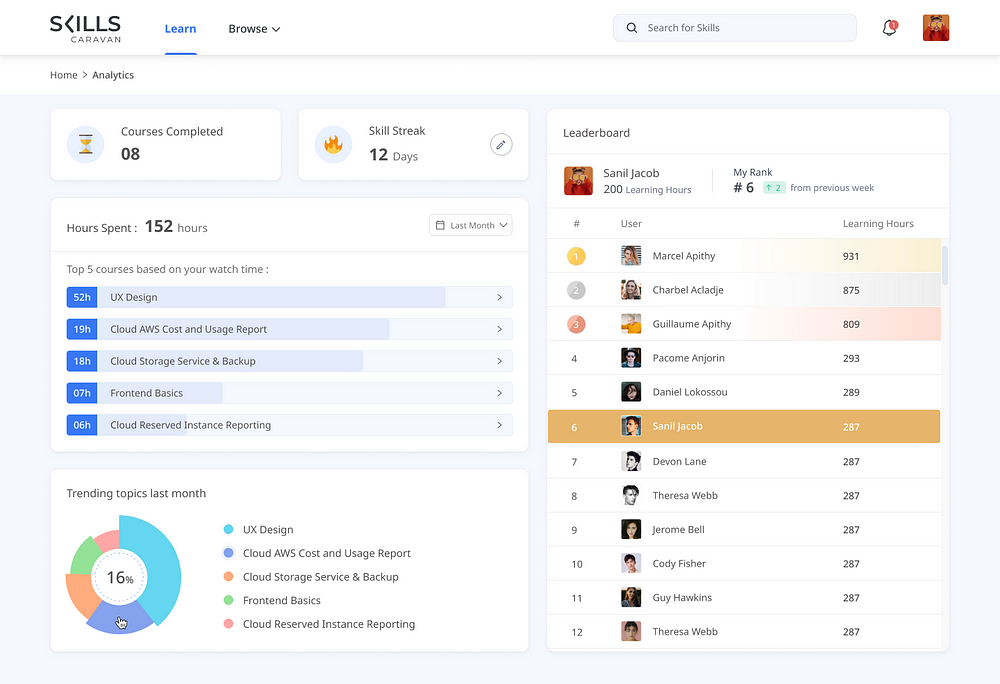How a Custom LMS Can Boost Employee Engagement and Training Effectiveness
In today’s fast-paced corporate world, continuous learning is no longer a luxury — it’s a necessity. Businesses that invest in employee development often see increased productivity, better job satisfaction, and improved retention rates. However, not all learning systems are created equal. Many off-the-shelf solutions lack the flexibility, relevance, and interactivity that modern learners demand. This is where a Custom LMS (Learning Management System) shines.
A Custom LMS allows companies to design and implement training programs tailored specifically to their workforce. From personalized learning paths to advanced analytics and seamless integrations, a custom LMS can significantly enhance both employee engagement and training effectiveness.
What is a Custom LMS?
A Custom LMS is a learning platform that is built or configured to meet the unique needs of an organization. Unlike generic LMS platforms that follow a one-size-fits-all approach, a custom LMS is flexible, scalable, and fully aligned with your company’s learning goals, branding, and processes.
Whether you’re a small business aiming for personalized onboarding experiences or a large enterprise with complex compliance requirements, a custom LMS gives you complete control over your training infrastructure.
Why Employee Engagement Matters in Training
Employee engagement is directly tied to the success of any training program. Engaged employees are more likely to participate actively, retain information better, and apply what they’ve learned in their day-to-day roles. Unfortunately, many traditional LMS platforms fail to engage learners effectively due to outdated interfaces, irrelevant content, or lack of interaction.
A Custom LMS addresses these issues by offering engaging features such as gamification, multimedia integration, discussion boards, and more — leading to increased motivation and better learning outcomes.

How a Custom LMS Enhances Employee Engagement
1. Personalized Learning Experiences
One of the biggest advantages of a custom LMS is the ability to create personalized learning paths. Employees have different learning styles, paces, and knowledge gaps. A Custom LMS can be tailored to accommodate these differences by:
- Offering individualized content based on job roles or skill levels
- Recommending courses using AI-based learning analytics
- Allowing learners to choose from different formats (videos, quizzes, webinars, etc.)
Personalization helps learners feel valued and invested, making them more likely to engage with the material.
2. Gamification and Interactive Features
Gamification is a proven strategy for boosting engagement. A Custom LMS allows you to integrate features such as:
- Leaderboards and badges
- Points and rewards
- Interactive quizzes and simulations
These elements tap into the competitive spirit of learners and make training feel more like a game than a chore, increasing participation and completion rates.
3. Mobile Accessibility
Today’s workforce is mobile. Whether it’s field agents, remote teams, or hybrid employees, learning must be accessible anywhere, anytime. A custom LMS can be optimized for mobile use, ensuring a seamless experience across all devices. This not only boosts engagement but also improves knowledge retention by enabling “learning in the flow of work.”
How a Custom LMS Improves Training Effectiveness
1. Focused and Relevant Content
Training effectiveness largely depends on the relevance of the content. Generic LMS platforms often include modules that don’t align with an organization’s specific objectives. A Custom LMS enables you to design content that is:
- Job-specific and aligned with organizational goals
- Updated regularly based on real-time feedback and business changes
- Tailored for different departments or teams
Relevant content ensures that employees are learning what truly matters, reducing time wastage and increasing ROI.
2. Real-Time Analytics and Reporting
Another major benefit of a Custom LMS is robust analytics. Training managers can access:
- Progress reports at individual and team levels
- Assessment scores and certification status
- Engagement metrics (logins, time spent, interaction frequency)
With this data, HR and L&D teams can identify knowledge gaps, track ROI, and refine training strategies for better outcomes.
3. Seamless Integration with Other Systems
A Custom LMS can be integrated with existing HR, CRM, or ERP systems. This enables:
- Automatic user enrollment
- Performance tracking tied to KPIs
- Streamlined reporting and data consistency
By integrating seamlessly with your existing tech stack, a custom LMS ensures smoother workflows and more actionable insights.
Custom LMS vs Off-the-Shelf LMS: A Quick Comparison
Feature Custom LMS Off-the-Shelf LMS Flexibility High (tailored to needs) Low to moderate Branding Fully customizable Limited customization Cost Higher upfront, long-term savings Lower upfront, recurring costs Scalability Built to scale with your business May require costly upgrades Engagement Features Tailored interactivity Generic features Analytics & Reporting Customized metrics Basic reporting options
While off-the-shelf LMS solutions may appear more affordable initially, they often lead to inefficiencies and higher costs in the long run due to limited adaptability.
The ROI of a Custom LMS
Investing in a custom LMS may seem expensive upfront, but the long-term benefits are significant:
- Improved Productivity: Employees upskill faster and apply knowledge more effectively
- Better Retention: Engaged employees are more likely to stay with your organization
- Higher ROI: Streamlined training processes and relevant content reduce wastage
By aligning your training platform with your business goals, a custom LMS becomes a strategic asset — not just a tool.
Final Thoughts
A Custom LMS is more than just a platform — it’s a catalyst for cultural change, professional growth, and organizational success. By addressing the unique learning needs of your workforce, it promotes higher engagement and more effective training.
In a world where talent development is key to staying competitive, investing in a custom LMS is a smart move. It empowers your employees, aligns with your brand, and drives measurable outcomes.
If you’re ready to move beyond generic learning systems and create a training program that truly works, consider developing a custom LMS tailored to your organization’s goals.

Comments
Post a Comment